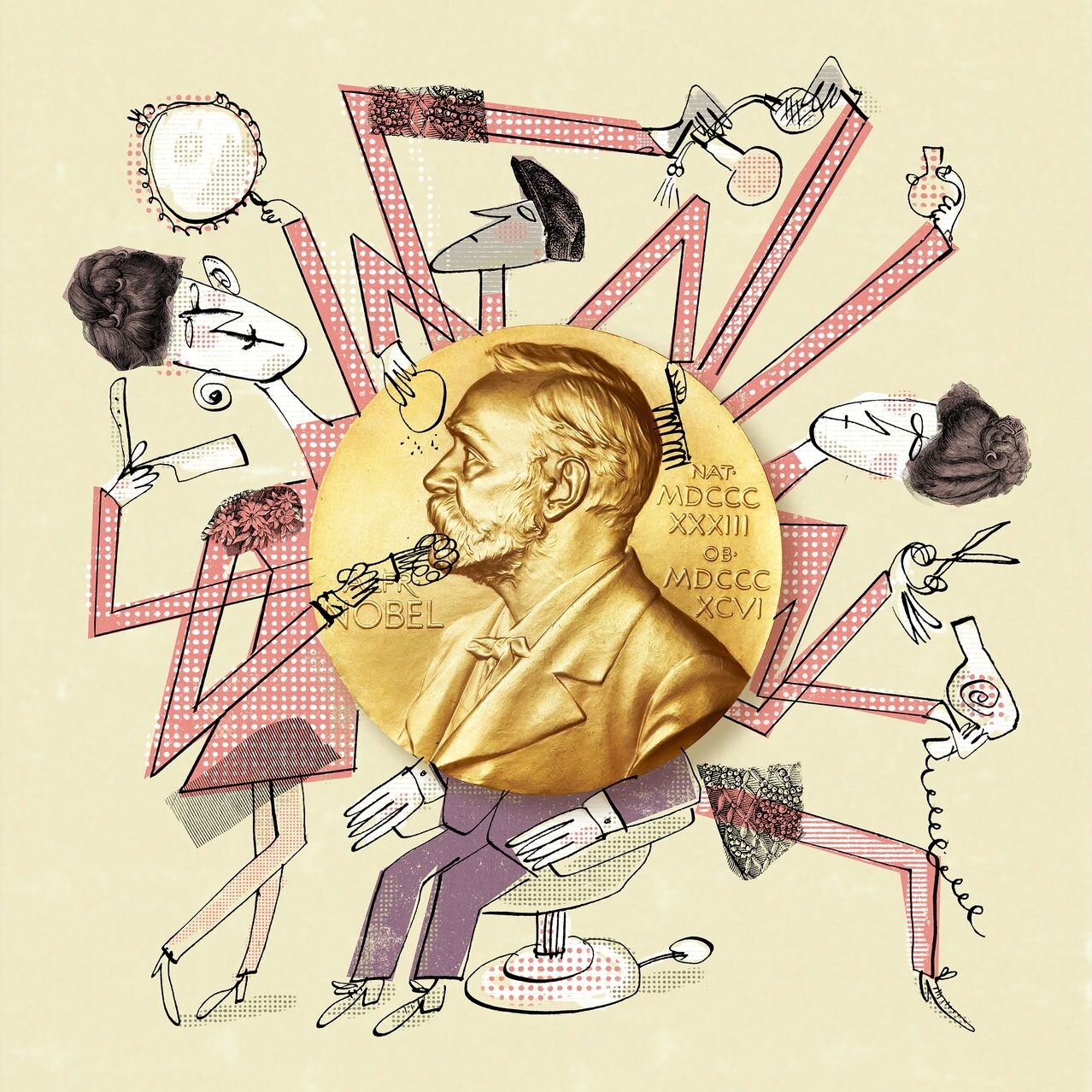On the Politicized Prize
How the West uses the Nobel Peace Prize to advance political agenda

TEHRAN – In a highly politicized move, the Norwegian Nobel Committee decided to award the Nobel Peace Prize 2023 to a female Iranian prisoner jailed for her anti-establishment activism.
The prisoner, Narges Mohammadi, was awarded the Nobel Peace Prize for her activities against the alleged “oppression of women in Iran and her fight to promote human rights and freedom for all,” according to a statement by the Nobel Committee.
Mohammadi is known for her cooperation with anti-revolutionary elements and has been jailed mainly for her incitement to regime change in Iran. She is currently serving her prison term in Tehran.
The decision to award Mohammadi the Nobel Prize comes in continuation of efforts to elevate her to a national leader in the alleged fight for freedom in Iran. “She is the symbol of what it means to be a freedom fighter in Iran,” Berit Reiss-Andersen, Chair of the Norwegian Nobel Committee, said immediately after the announcement of the Nobel Peace Prize 2023 to Narges Mohammadi.
This is not the first time the Nobel Committee has allocated this prize to suspicious Iranian elements. In 2003, Shirin Ebadi was awarded the same prize, turning her into a prominent opposition figure working to achieve regime change in Iran.
But while the Nobel Prize for other science fields – which rarely goes to non-Western figures- may enjoy some credibility, the Nobel Peace Prize is a highly politicized award with a history of being used to advance Western political agenda against governments opposing the Western hegemony.
This is one of the reasons why many of the Nobel Peace awards stirred major controversies.
Also, the process of selecting Nobel Prize laureates has been criticized by critics as being vague and non-transparent. The Nobel Foundation prohibits disclosing information on the nominations and deliberation process for the next 50 years after winning, according to Al-Jazeera. The selection process has at times been marred by accusations of sexism, racism, and the award committee being Eurocentric.
In addition, the award has been criticized for its premature or faulty understanding of peace or for being politically motivated. For example, some of the Nobel Peace laureates have later been criticized for committing acts that violate human rights.
The Nobel Prize has also been marred by evidence that it has closely been linked to CIA-led political campaigns against foreign governments. U.S. documents revealed nearly a decade ago the CIA printed Russian-language copies of Boris Pasternak's Nobel-winning novel Doctor Zhivago during the Cold War in an attempt to sow unrest among Soviet citizens, according to the Guardian.
Conversely, the Nobel Committee has refrained from awarding the Nobel Peace Prize to people who might have deserved it. Critics have pointed to the case of Mahatma Gandhi, the legendary leader of the Indian independence movement. Geir Lundestad, the ex-director of the Nobel Institute, admitted in 2006 that that was the greatest omission in the prize's history.
According to Lundestad, Gandhi was shortlisted five times (twice before World War II, then in 1946, 1947, and 1948), but the committee's Euro-centric viewpoint and its failure to support national liberation struggles in colonies prevented Gandhi from receiving the award, according to the Business Standard.
Leave a Comment